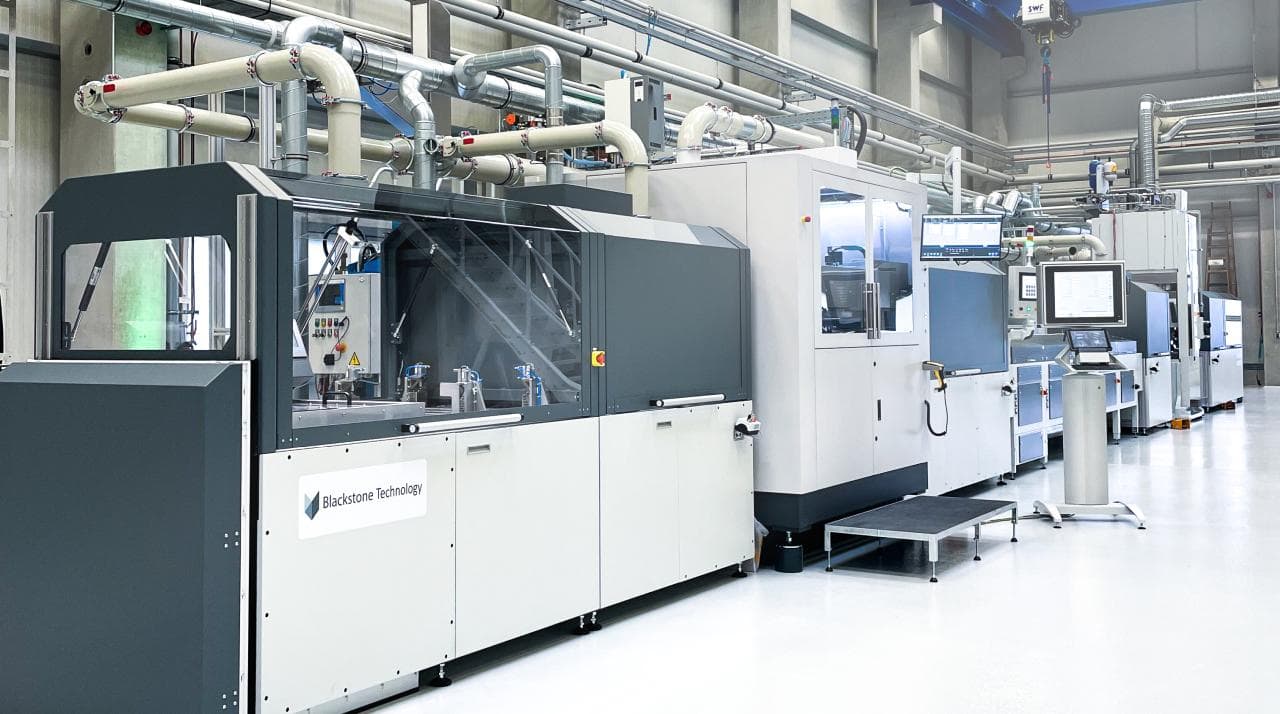Blackstone Resources has built a production line of 3D-printed batteries. The short-term production will be sinusoidal cells, which should allow a 20 percent higher density in lithium-ion cells. On a press day, the company announced more details about its innovative idea.
The manufacturing process offers several advantages over traditional methods, according to Blackstone in a recent press release: The 3D printing process allows for thicker energy storage layers in battery cells, increasing the gravitational energy density by 20 percent. In addition, Blackstone battery cells are flexibly adaptable in size and can be precisely customized for a variety of customer requirements, such as those of automobile companies.
The area of u200bu200bsaving batteries is 15 percent, and the savings in materials is 20 euros per kilowatt-hour, according to the company. At the same time, energy consumption in production decreased by 23 percent. “The process is based on an eco-friendly process that is purely water-based and reduces waste by 50 percent. In doing so, we are making an important and sustainable contribution to the transport transition and the fight against climate changeExplains Ulrich Ernst, CEO and founder of Blackstone Resources.
Blackstone presented their LFP cells, which they announced in February, in detail at the event. Using the cathode material from Weimar’s IBU-Tec, the LFP cells are now being produced with Blackstone Thick Layer technology in Döbeln, where the company has created 40 well positions, which should enable higher power density. Specifically, Blackstone advertised 220 W/kg. For comparison: with blade cells, which are technically advanced LFP cells, the Chinese manufacturer BYD achieves 166 W/kg at the cell level.
Blackstone has now started with LFP and NMC cells, but the technology will be applicable to all cell chemicals. In the future, the company also wants to print solid-state batteries – using solid-state technology, the energy density should be scalable by a noticeable 70 percent.
The next step is to develop a battery system with partner Ecovolta, which primarily produces batteries for electric commercial vehicles. A project to equip electric buses with 3D battery technology is being planned using Voith SE and Orten Electric Trucks. Talks are also underway with LioVolt about joint production of a bipolar battery. These are lithium-ion batteries that consist of stacked and series electrodes designed to be bipolar.
Source: Blackstone – press release on December 9, 2021

“Certified tv guru. Reader. Professional writer. Avid introvert. Extreme pop culture buff.”







More Stories
Samsung Quantum Dot TV: Art meets technology
Pitch: €56m for energy startup Reverion
Plastoplan: Plastics for Energy Transition